The Chancellor of the Exchequer announced the government’s tax and spending plans for the year ahead on Wednesday 3 March 2021. The Budget proposals are subject to amendment before the Finance Act receives Royal Assent. Please contact our tax team for further advice and the latest tax rates and information.
Personal Taxation and Investments
Income Tax
The personal allowance will rise to £12,570 and the higher rate threshold for 2021/22 will increase to £50,270. From 2022/23 to 2025/26, both the personal allowance and higher rate threshold will be frozen.
National Insurance Contributions
The NIC upper earnings limit and upper profits limit will remain aligned to the higher rate threshold at £50,270 for 2021/22 and through to 2025/26.
Taxation of payments under the self-employment income support scheme (SEISS)
Grants from the SEISS made on or after 6 April 2021 will be taxed in the year of receipt regardless of the accounting year end.
Income tax exemption for employer-reimbursed COVID-19 tests
There will be an income tax exemption for payments that an employer makes to an employee to reimburse the cost of a relevant coronavirus test in 2020/21 and 2021/22.
Individual savings account (ISA) subscription limits
The ISA annual subscription limit for 2021/22 will remain at £20,000 and the corresponding limit for junior ISAs and child trust funds will stay at £9,000.
Lifetime allowance
The lifetime allowance for pension savings will be frozen at £1,073,100 until April 2026.
Capital Taxes
Capital gains tax annual exempt amount
The annual exempt amount for individuals and personal representatives will remain at £12,300 until 5 April 2026, and the amount for most trustees will likewise remain at £6,150.
Inheritance tax (IHT)
The IHT nil rate band will remain at £325,000 until 5 April 2026. The residence nil rate band will likewise stay at £175,000.
Stamp duty land tax temporary rates
The temporary increase to £500,000 to the SDLT nil rate band for residential property in England and Northern Ireland is extended until 30 June 2021. From 1 July 2021 until 30 September 2021, the nil rate band will be £250,000 and will then return to £125,000.
Non resident SDLT
As previously announced, there will be an SDLT surcharge on non-UK residents buying residential property in England and Northern Ireland from 1 April 2021. The surcharge will be 2% above the existing residential rates.
Business Taxes
Corporation tax
The main rate of corporation tax will remain at 19% for the year beginning 1 April 2022 and will rise to 25% from April 2023 for businesses with profits of £250,000 and over. The rate for businesses with profits of £50,000 or less will remain at 19% and there will be a marginal taper for profits between £50,000 and £250,000.
These thresholds are proportionately reduced for the number of associated companies and for short accounting periods.
Loss relief
The period over which incorporated and unincorporated businesses may carry back trading losses will be extended temporarily from one year to three years.
This extension will apply to a maximum £2 million of unused trading losses made in each of the tax years 2020/21 and 2021/22 by unincorporated businesses. The same maximum will apply separately to companies’ unused trading losses, after carry back to the preceding year, in relevant accounting periods ending between 1 April 2020 and 31 March 2021 and for periods ending between 1 April 2021 and 31 March 2022.
The £2 million cap will be subject to a group-level limit, requiring groups with companies that have the capacity to carry back losses above £200,000 to apportion the cap between their companies.
Research and development tax credits
For accounting periods beginning on or after 1 April 2021, the amount of payable R&D tax credit that a small and medium-sized enterprise can receive in any one year will be capped at £20,000 plus three times the company’s total PAYE and NIC liability.
Super-deduction for investment in plant and machinery and 50% first-year allowances
Companies investing in qualifying new plant and machinery between 1 April 2021 and 31 March 2023 will benefit from new first-year capital allowances.
Investments in main-rate assets – those that qualify for 18% writing down allowance will be relieved by a 130% super-deduction, while investments in assets qualifying for 6% WDAs will benefit from a 50% first-year allowance.
Annual investment allowance extension
The temporary £1 million limit for the AIA will be extended again to 31 December 2021.
Value Added Tax
Registration and deregistration thresholds
Until 31 March 2024 the VAT registration threshold will remain at £85,000 and the deregistration threshold will stay at £83,000.
VAT deferral new payment scheme
Businesses that deferred VAT payments due between 20 March and 30 June 2020 will be able to pay them in 8 to 11 interest-free equal monthly instalments up to 31 March 2022.
Tourism and hospitality
The temporary reduced rate of 5% for hospitality, holiday accommodation and attractions is extended until 30 September 2021. A new reduced rate of 12.5% will apply from 1 October 2021 to 31 March 2022, at which point the rate will revert to the 20% standard rate.
Making tax digital
MTD will be extended to all VAT registered businesses with effect from 1 April 2022.
Coronavirus Measures
Coronavirus job retention scheme
The CJRS (furlough scheme) will be extended to run until 30 September 2021, providing employees with 80% of their current salary for hours not worked.
Up to the end of June, the current 80% government payment level will be maintained (capped at £2,500 a month), with employers responsible for NICs and pension payments. The government payment will then drop to 70% in July and 60% in August and September (with the monthly cap reducing proportionately).
Self-employed income support scheme (SEISS)
The SEISS will also be extended to September 2021. A fourth SEISS grant will run from 1 February to 30 April, worth 80% of three months’ average profits (capped at £7,500). This grant will be claimable from late April.
A fifth grant, claimable from late July, will cover the period May to September. It will be worth 80% of three months’ average profits where the claimant’s turnover has dropped by 30% or more. Where the fall in turnover is less, the grant will be limited to 30% of profits (capped at £2,850). Eligibility for both grants will be extended to include those who are self-employed in 2019/20 and who have filed a tax return for that year.
Recovery loan scheme
From 6 April 2021, a new recovery loan scheme will provide lenders with a guarantee of 80% on eligible loans between £25,000 and £10 million. The scheme will be open to all businesses, including those that have already received support under the existing COVID-19 guaranteed loan schemes.
Restart grants
The government will provide restart grants in England of up to £6,000 per premises for non-essential retail businesses and up to £18,000 per premises for hospitality, accommodation, leisure, personal care and gyms. Local authorities in England will be given an additional £425 million of discretionary business grant funding.
Business rates reliefs
The 100% business rates relief for eligible retail, hospitality and leisure properties in England will continue to 30 June 2021. It will be followed by 66% business rates relief from 1 July 2021 to 31 March 2022, capped at £2 million per business for properties that were required to be closed on 5 January 2021, or £105,000 per business for other eligible properties. Nurseries will also qualify for relief in the same way as other eligible properties.
A summary of the main tax rates and allowances for 2021/2022 can be found on the Knox Cropper Tax Card which can be downloaded in digital format here. For all other information and tax planning opportunities, contact our tax team for the latest updates.
PDF Download:
Get in touch or request a call back:
Call 0330 223 6400 or complete the form to make an enquiry or request a call back (* indicates a mandatory field).



